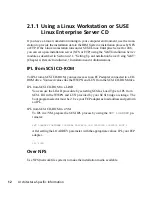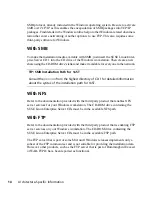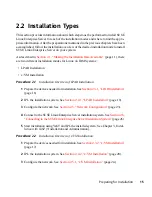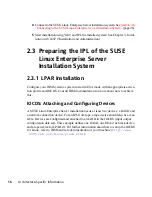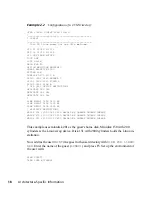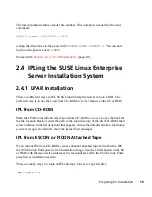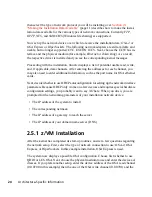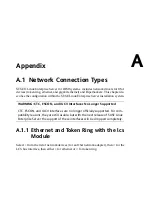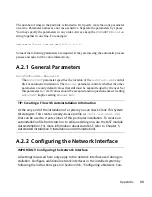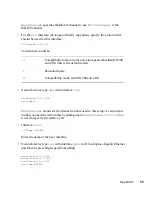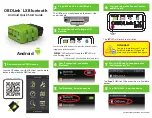
OSA control channel (0.0.0702). After entering the channels, insert the name of the
port to which the OSA card is connected.
SUSE Linux Enterprise Server now tries to load the network module by building a pa-
rameter line with the information provided then displays all loaded modules. Loading
was successful if you get an output like:
Example 2.6
Network Device Driver Parameters
qeth: Device 0.0.0700/0.0.0701/0.0.0702 is a Guest LAN QDIO card (level:
V448)
with link type GuestLAN QDIO (portname: VSW1)
qeth: Hardware IP fragmentation not supported on eth0
qeth: VLAN enabled
qeth: Multicast enabled
qeth: IPV6 enabled
qeth: Broadcast enabled
qeth: Could not set up broadcast echo filtering on eth0: 0x2
qeth: Using SW checksumming on eth0.
qeth: Outbound TSO not supported on eth0
Next, enter your IP address, netmask, and default gateway. To install over token ring,
iucv, or ctc, enter additional information, like the the peer address (for a point-to-point
adapter) or the port name.
Finally, the IP address of the DNS server and the MTU size are requested. The MTU
size should always match the one used by the network to which to connect.
Now a summary is displayed. Confirm whether your input is correct. Before the network
is started, enter a password that is valid only during the installation. After having IPLed
the installed system, enter the real root password.
With all basic parameters set up, the network is started. Check the output of ifconfig,
which should contain two entries: a loopback (lo) connection and one connection (tr0,
eth0, ctc0, escon0, iucv0, or hsi0) with correct settings.
Preparing for Installation
25


